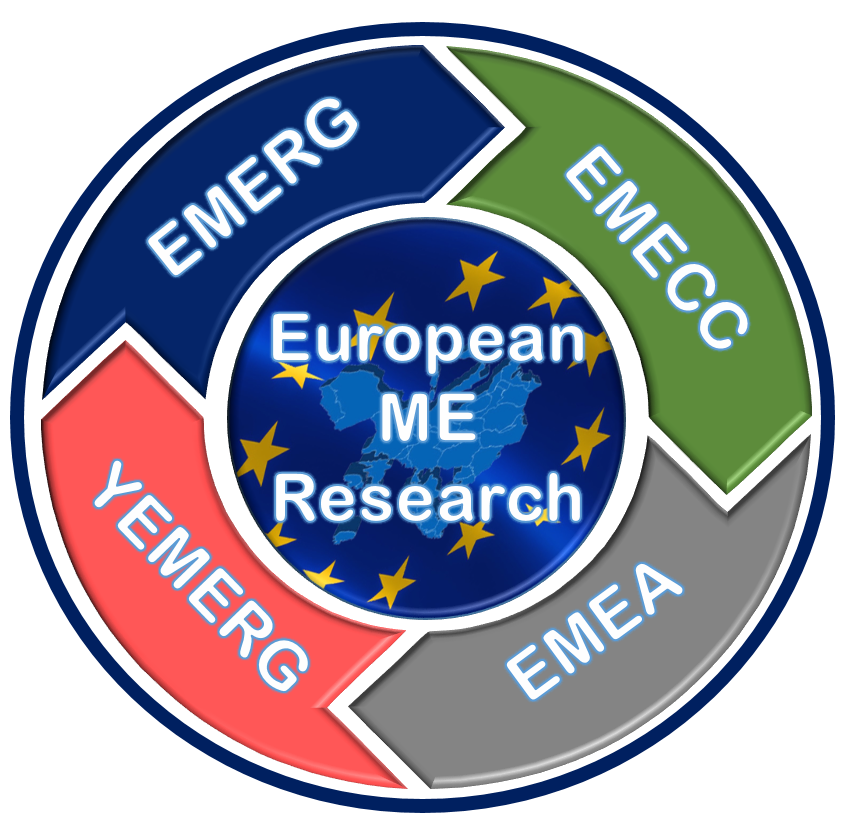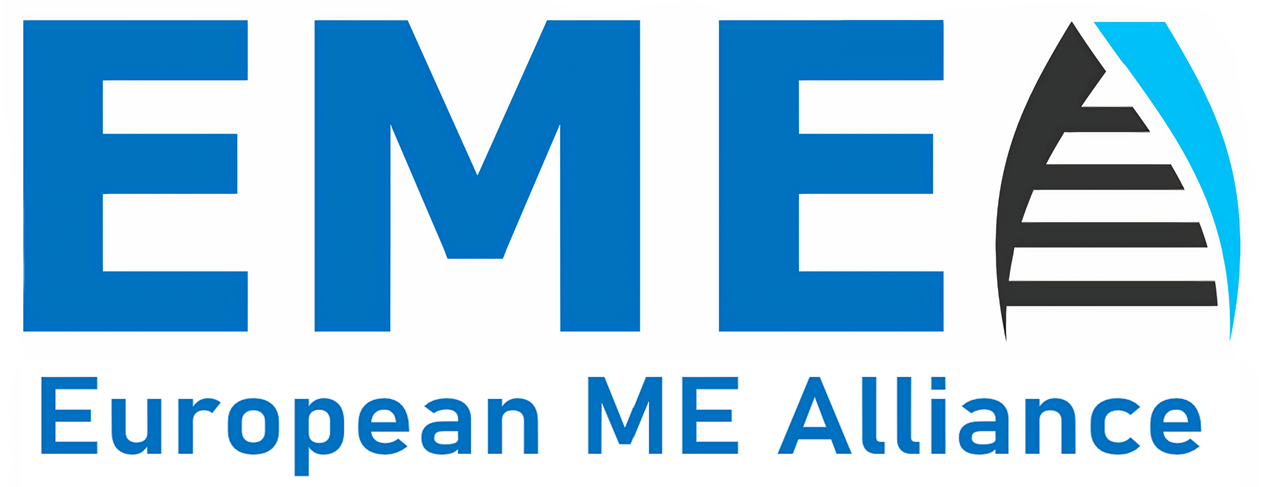Background
People with ME need early and correct diagnosis, proper treatment and advice.
The status of services for people with ME and their families in the UK has been poor with little knowledge of biomedical research being applied.
Simplistic and ineffectual psychological therapies are offered in place of real treatments - wasting public money and doing nothing to help patients.
This has resulted in ME patients having no real healthcare service and far too little progress being made in attracting new researchers or clinicians to study the disease.
The dangers for people with ME in having no proper clinical examination and no access to continuous care is that the disease can develop into more severe forms with significant loss of functioning.
There is also the danger of mis- or missed diagnosis - a common problem with people thought to suffer from ME.
The USA Food & Drugs Agency (FDA) recently decided to re-categorise ME in "Immune Diseases - describing it as "SERIOUS and LIFE THREATENING", on a par with cancer or /heart failure (click here) and the UK government recognise ME as a chronic neurological illness.
To download our poster please click here
History

Invest in ME Research has been attempting to change this situation by annual international research
colloquiums and public conferences.
The charity has also been funding and facilitating biomedical research into ME and the training of medical students.
The charity's' proposal for a Centre of Excellence for ME was first made in 2010 after members of the charity had sat in meetings with the NHS for several years - but these meetings produced very little progress in improving things for people with ME.
With the support of our advisor, Dr Ian Gibson , the charity reached agreement with the Norfolk PCT to fund proper diagnosis and extensive examinations for Norfolk patients provided asuitable consultant could be found. Though the government's healthcare reforms removed that possibility Invest in ME have been continuing to work towards helping to establish an examination and research facility for ME in Norwich, Norfolk, UK, utilising the knowledge, expertise and facilities within and around the Norwich Research Park - which includes the University of East Anglia, the Quadram Institute (formerly Institute of Food Research), Earlham Institute (formerly TGAC) and the Norfolk and Norwich University Hospital.
With the help of the Let's Do It For ME campaign our foundation research project was funded and established in Norwich Research Park with UEA/Quadram Institute.
In 2012 the charity announced its intention to facilitate and fund a clinical trial of rituximab for ME patients. This led to further research on B-cells which allowed a preliminary study to be established and performed.
In 2020 the charity signed a contract with the Quadram Institute for a project that will perform a clinical trial using FMT within Norwich Research Park, in collaboration with university, university hospital and local ME clinic.
- 2020 - Funding Award for Clinical Trial
- 2019 - News from Norwich - Conference Announcements
- 2017 - Professor Ian Charles Opens IIMEC12
- 2016 - IIMER Big Lottery Award
- 2015 - Professor Ian Charles Opens IIMEC10
- 2014 - Rituximab Trial
- 2013 - Foundation Project
- 2012 - Let'sDo It For ME
- 2011 - Agreement with PCT
- 2010 - CofE proposal created
The Centre of Excellence for ME Elements
With the objective of improving and promoting education about ME amongst healthcare staff and raising awareness of the disease the charity feels that the best way to make progress is to establish a national centre of excellence for ME.
To this end we have established momentum by implementing research projects and synergising resources to build the foundations of a research base which can develop into a UK Centre of Excellence for Biomedical Research into ME.
The charity believes that a change needs to be made in the way service provision for ME patients is carried out and is suggesting a simple but effective structure for providing services and instituting major biomedical research into this disease which will have profound effects on the way ME is treated in the UK and establish a hub of scientific and clinical excellence for ME within Europe.
The Centre of Excellence is now a distinct and attainable objective - harnessing the benefits of collaborative biomedical research in modern facilities with worldclass researchers. Our aim is to establish a world-class, sustainable examination and research
centre which would form the hub of European research and treatment for this disease and produce a pathway to produce huge benefits for the nation and across the world.
Read More
THE RESEARCH
With the help of leading researchers the charity is proposing a number of initial projects which would help establish a research base and lead to further projects being initiated based on findings.
It is not often realised that 60-70% of the immune system is located in the gut as a vast network of lymph tissue referred to as GALT (gut associated lymphatic tissue). The research highlighted in the proposal involves looking at gut microbiota, which is the latest thinking in how to go about research. In USA, renowned pathogen hunter Dr. Ian Lipkin and specialist clinician Dr. Nancy Klimas have suggested a similar approach.
There are also a number of new ideas being developed and collaboration between researchers at universities in UK and Europe and USA is underway thanks to the initiatives of the charity and researchers.
The aim is to build on this but the research has to start somewhere and so the researchers have begun afresh with the best approach. This research proposal is to build a strategy of biomedical research which would involve patients, clinicians and researchers working together.
A foundation project at the University of East Anglia began in 2013 - funded by Invest in ME Research. More details are available at this link.
Further projects are underway in Norwich Research Park - more details here.
The charity had been keen to replicate the Norwegian
findings (click here) using Rituximab.
We initiated B-cell research at UCL which would have led to a UK rituximab clinical trial.
Dr Oystein Fluge and his team from Haukeland University Hospital in Bergen, Norway, visited Norwich in January 2017
to collaborate with the researchers from University of East Anglia/Quadram Institute Biosience/University College London/Oxford University
- details here.
The Norwegian Phase III rituximab trial proved negative inthe end but useful research and collaborations
have resulted.
More details of this are here.
We have continued to fund a PhD project at UCL - click here.
Our strategy also includes European and international collaboration.
The charity has spent many years attempting to cultivate
international collaboration with research into ME. We have initiated and facilitated the formation of the European ME Research Group (EMERG) as a way
of fast tracking European research - more details here.
Our anual research colloquiums are also aimed at increasing collaboration and regularly attract delegates from 14 countries - more details here.
A recent initiative has been to create the European ME Clinicians Council in order to create a network of experienced clinicians who can share
knowledge regarding treatments and research and create common standards - click here for more information.
We welcome support to help us build a Centre of Excellence for ME.
The Benefits
- Early and correct diagnosis of ME
- A clinical lead consultant would assess and plan the development of future services in conjunction with commissioning CCGs
- It would provide access to specialist assessment, diagnosis and advice on the clinical management, including symptom control and specific interventions, for both patients and health professionals
- Eventual provision of an ambulatory service and/or tele-medical services for those severely ill patients who cannot be moved
- development of a network of local multi-agency domiciliary services to support people who are more severely affected and who are unable to access hospital and primary care services
- allow ME/CFS patients (including those severely affected) to participate in clinical trials, where novel research will be conducted, and where medical students can learn about this disease.
- facilitate training and education opportunities for healthcare staff to enhance their knowledge and skills in the diagnosis and management of ME
- lead the development of services within primary and secondary care and support GPs and other health professionals in the care of patients with ME.
- Healthcare staff would feel more comfortable with the diagnosis of ME being made
- Undertake comprehensive assessments and provide a care package for each patient to include carer and family support
- Savings on existing consultant referrals and staff by concentrating ME examination in one area
The benefits of this approach will, we are sure, save lives and could help restore or improve the lives of hundreds of thousands of patients and their families.
Our Centre of Excellence Fund
THE FUTURE
Invest in ME Research and our supporters have been facilitating research collaboration between individuals and organisations and have funded UK research.
The charity's success in arranging annual international biomedical research conferences and research colloquiums that bring researchers together from around the world demonstrates its determination and commitment to find a cause or causes for this devastating disease.
IiMER has European connections and links to other researchers and institutes in Europe and Australia and USA.
Invest in ME Research was co-founder of
the European ME Alliance and initiated and facilitated the formation of the
European ME Research Group (EMERG) -
 The European ME Research Group - a collaboration of researchers and institutes within Europe.
More details can be found at the EMERG website.
The European ME Research Group - a collaboration of researchers and institutes within Europe.
More details can be found at the EMERG website.
Research Collaboration
Collaboration has been one of the central tenets of Invest in ME Research’s policy following our second international ME conference in 2007 in London.
As a founding member of the
European ME Alliance
we work with international colleagues
 (advocates,
researchers, research organisations and physicians) to make rapid progress in finding the cause of ME and providing
treatments for all.
Funding applications will be considered from outside of the UK though we do
prefer to use collaborations with UK and European organisations and researchers.
(advocates,
researchers, research organisations and physicians) to make rapid progress in finding the cause of ME and providing
treatments for all.
Funding applications will be considered from outside of the UK though we do
prefer to use collaborations with UK and European organisations and researchers.
Invest in ME Research also initiated and facilitated the formation of the European ME Research Group (EMERG) -
 The European ME Research Group - a collaboration of researchers and institutes within Europe.
More details can be found at the EMERG website.
The European ME Research Group - a collaboration of researchers and institutes within Europe.
More details can be found at the EMERG website.
The charity has a preference for involving EMERG members in all research that we fund or support.
The charity also has facilitated and encouraged international collaborations and our annual research Colloquiums attract researchers from around the world. The charity also often funds the registration costs for researchers which is also part of funding of research.
The foundations are therefore already in place to advance science and provide the promise of better treatment and possible restoration of function and lives back to a section of the community who have received very little help in the past.
Please help us to find the cause of this disease and develop effective treatments to permit patients to regain their lives.
Please help support our Centre of Excellence Fund - click here
Other ways to donate are available via this link
Click on the links below for FAQs regarding for ME and the research.
FAQs
Executive Summary for MPs and Others

